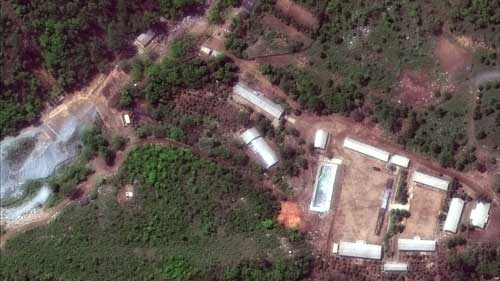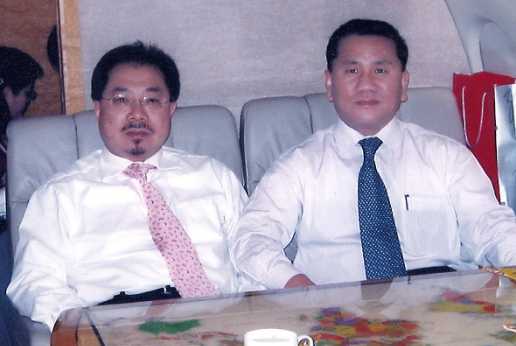North Korea claims to have detonated a nuclear device this week in an underground test. Nuclear experts around the world concur that the test took place and that the device had a 6-7 kiloton yield.
Now, North Korea is telling China, its key ally in the region, that it is preparing to conduct another, if not two more, tests this year as well as another rocket launch.
This news has prompted South Korea and Japan to consider maintaining a nuclear arsenal of their own to counter North Korea in the nuclear arena.
In a meeting, South Korean lawmaker, Chung Mong-joon, of the governing New Frontier Party, met with collegues from the national assembly this week and called North Korea “a gangster in the neighborhood buying a brand new machine gun.” He went on to say that against this, South Korea is attempting to defend itself with a pebble.
Japan as well has begun discussions anew about maintaining a nuclear arsenal. The former four-term Tokyo governor, Shintaro Ishihara, who is now a Parliament member and the co-leader of the Japan Restoration Party also pointed out that his country should have a nuclear stockpile to counter the nuclear capabilities of its neighbors, North Korea, China and Russia.
The Prime Minister of Japan, Shizo Abe is also advocating for a revision of Japan’s Article 9 that prohibits that country from maintaining a war potential. The Defense Minister, Itsunori Onodera instead says that his country should strengthen the Japan-U.S. allliance.
An un-named overseer of Japan’s atomic energy program reports that he has been approached by several lawmakers asking how long it would take to construct a nuclear weapon given their current capabilities. The answer to that question is widely regarded as six months or less.
Washington would not give its approval to Japan and South Korea, however. Carl baker, a former economic and political analyst for the U.S. forces in South Korea pointed out that the response out of Washington would be negative. “There is the Non-Proliferation Treaty which requires people who don’t possess nuclear weapons to not possess nuclear weapons. For South Korea and Japan to basically disregard the treaty would be a very bad step.”
Both South Korea and Japan undertook secret studies and programs to explore nuclear weapons in the past. Japan did so in the 1960s and South Korea had a secret weapons exploration committee under President Park Chung-hee in the 1970s. It was concluded in 2004 by the International Atomic Energy Agency that South Korea even produced enough fissile material for a weapon. Both countries have nuclear power plants on their soil and so have the material to build such weapons if they so desired.
Analysts however, are saying that the rhetoric over nuclear arms coming out of Japan and South Korea is instead a move to bring China firmly into the debate over North Korea’s foray into the nuclear club. Both countries hope that China will be able to convince the North Koreans to abandon their nuclear endevours.
The test carried out on Tuesday drew widespread global critisicm. More sanctions are sure to come from this most recent event. But, North Korea isn’t afraid of more sanctions being placed on it. A source in North Korea says that the North Korean government is confident that agricultural and economic reforms will allow that country to rely less on China this year reducing dependance from China for food.
Although China has signed on to the sanctions condemning tests undertaken by North Korea in 2006 and again in 2009, China has stopped short of abandoning all support for their isolated northern neighbor. China will again support new sanctions according to sources in Asia but to what extent is unknown.
North Korea, in the past has called China a U.S. puppet when China last agreed to sanctions over the North Korean detonation of a nuclear device.





